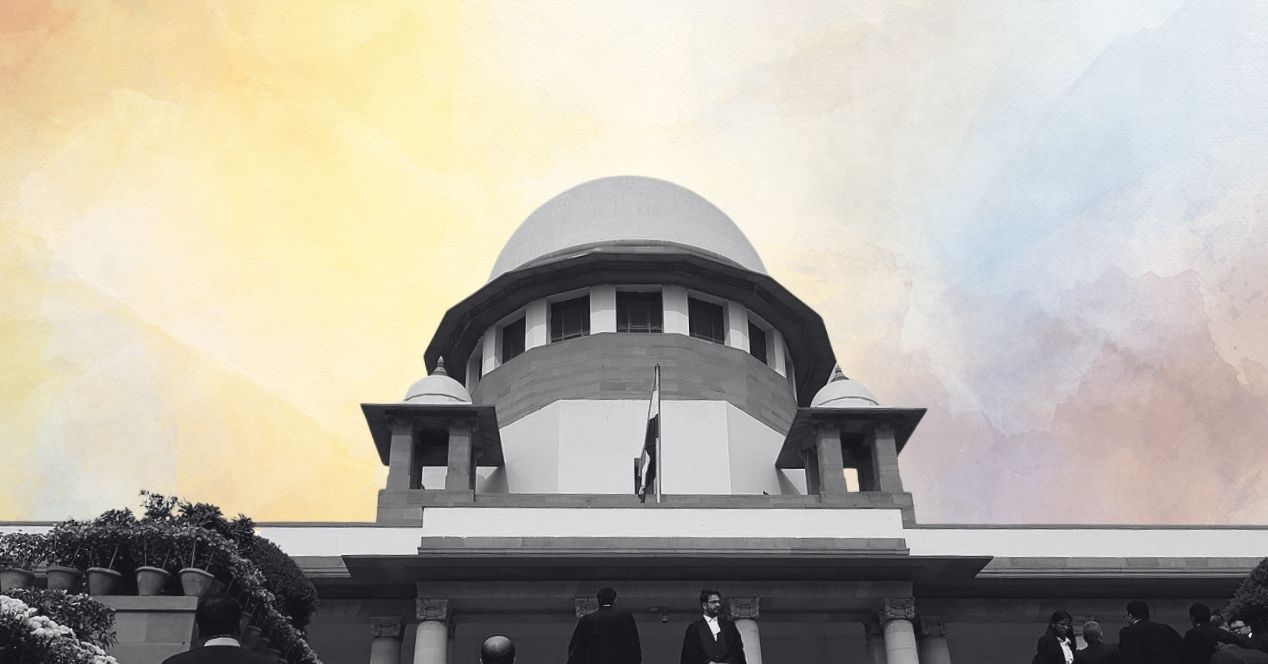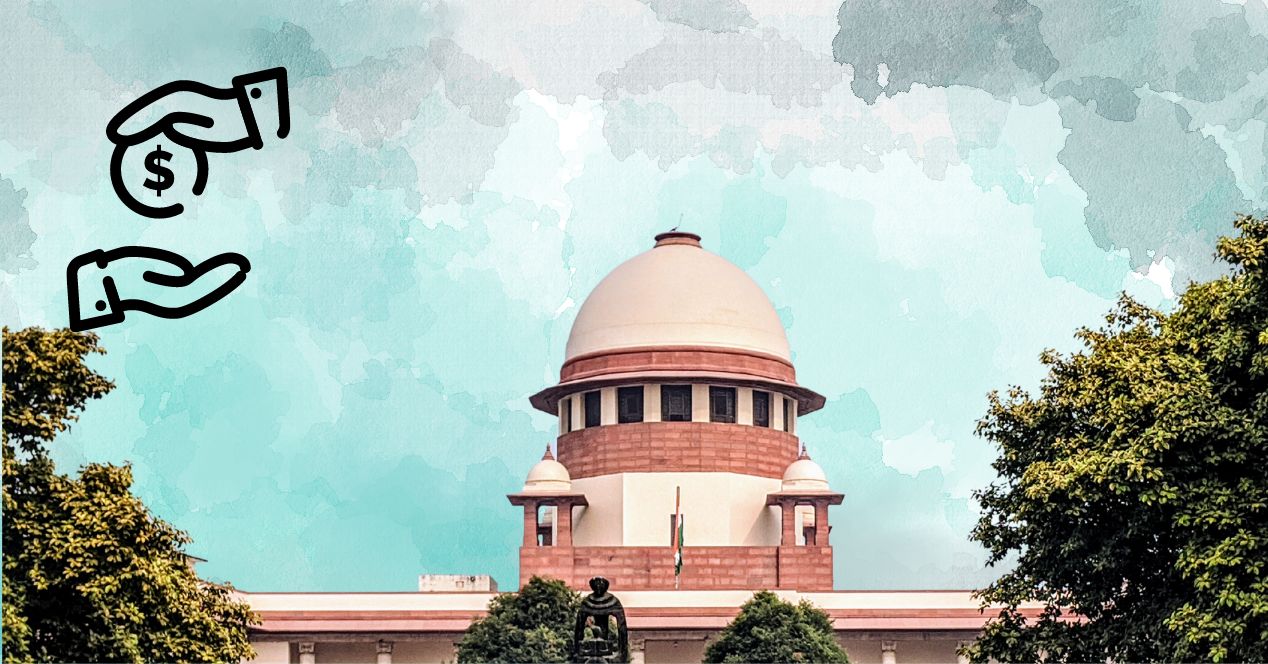Analysis
Does the Constitution protect MLAs from charges of bribery?
A 7-judge Bench will examine if MLAs who accept bribes to vote in a house of legislature enjoy immunity from prosecution.

Can an elected official escape criminal prosecution for bribery if the bribe received influences votes cast by them in a house of legislature? In 1998, a seemingly uncertain Supreme Court believed so. Now, the matter is set to be re-examined with Chief Justice D.Y. Chandrachud remarking, ‘If we have a particular issue which deeply affects the morality of our polity, we should not in that sense not take an opportunity to straighten the law.’
The Chief Justice’s comment accompanied the SC’s decision to revisit its controversial 5-judge bench decision in P.V. Narasimha Rao v. State (1998) which held that Parliamentarians who are bribed to vote in a certain way in Parliament are protected by the Constitution, with a 3:2 majority. A 7-judge bench will re-examine the scope of immunity granted to members of state legislatures and parliament under Article 105 (privileges of members of Parliament) and Article 195 (privileges of members of state legislatures).
What was the P.V. Narasimha Rao v. State case about?
In 1991, the Congress party won the 10th Lok Sabha elections and formed the government with P.V. Narasimha Rao as the Prime Minister. In July 1993, this government was faced with a vote of no-confidence, which it managed to narrowly defeat by a margin of 14 votes (251 votes in favour of the motion and 265 votes against). Soon after, a complaint was filed under the Prevention of Corruption Act, 1988 (PCA), alleging that some Parliamentarians were bribed to vote against the motion of no-confidence.
The persons accused of accepting the bribes put forth two primary arguments. First, they enjoyed immunity under Article 105 of the Constitution for any votes cast by them in Parliament and any actions associated with casting such votes. Second, members of Parliament do not hold public office and therefore cannot be brought under the purview of the PCA.
The Court agreed with these arguments, and on 17th April 1998, a 3:2 majority ruled that Members of Parliament (MPs) are immune from prosecution not just for votes cast by them in Parliament, but also for any acts associated with the casting of such votes. Further, the decision also held that there is no competent authority under the PCA to grant sanction for the prosecution of an MP under the PCA.
It now meant that if an MP was bribed to vote in a certain way in Parliament, then the act of receiving this bribe would be protected by Article 105(2), and that they did not come under the scope of the PCA.
Why are parliamentary privileges important?
Elected officials belonging to Parliament or any state legislature are accorded certain rights and immunities to ensure that they are able to carry out their duties in a House effectively. Immunity from prosecution for any words spoken or any votes cast in a house of legislature is one such crucial privilege. In Narasimha Rao, Justice Agrawal observed that ‘the object of the immunity conferred under Article 105 (2) is to ensure the independence of the individual legislators. Such independence is necessary for healthy functioning of the system of parliamentary democracy adopted in the Constitution.’
How did the Sita Soren case arise?
In 2012, Jharkhand Mukti Morcha MLA Sita Soren was accused of accepting a bribe to vote for a particular candidate in the Rajya Sabha elections that year. Subsequently, the Election Commission of India countermanded the Rajya Sabha elections as they found the elections to be compromised. In the hearings that followed, Ms. Soren argued that she enjoyed immunity under Article 194(2) for any votes cast by her in a house of state legislature. Article 194(2) states that ‘no members of the legislature of a State shall be liable to any proceedings in any court in respect of anything said or any vote given by him in the Legislature’. Relying on Narasimha Rao, Ms. Soren argued that immunity under Article 194(2) extended not only to any votes cast by her in the legislature but also to all acts connected with the casting of such votes.
The Jharkhand High Court dismissed Soren’s petition claiming legislative immunity stating that as per the SC’s 1998 decision, there must be a nexus between the bribe received and the vote cast. Notably, it was found that while Soren did accept a bribe to cast her vote, she had voted for a different candidate than the one she was supposedly bribed to vote for. Accordingly, the HC pointed out that the SC’s decision had carved an exception for one of the persons in the 1998 case—Mr. Ajit Singh—who had accepted the bribe but did not cast his vote.
How did the matter get referred to the 7-Judge Bench?
Aggrieved by the Jharkhand HC’s decision, Soren filed an appeal before the Supreme Court. The 3-judge bench hearing Soren’s appeal recognised that the issues raised in the case were of wide public importance. Accordingly, it referred the matter to a 5-judge Constitution Bench on 7th March 2019.
On 20th September 2023, the 5-Judge Bench hearing the matter pointed out that the Jharkhand HC’s decision and Soren’s defence, both relied on Narasimha Rao. Further, the Bench observed that the correctness of the view of the majority in Narasimha Rao may have to be re-examined since it has ‘major ramifications for the polity and preservation of probity in public life’. Accordingly, the matter was referred to a 7-judge Bench.




